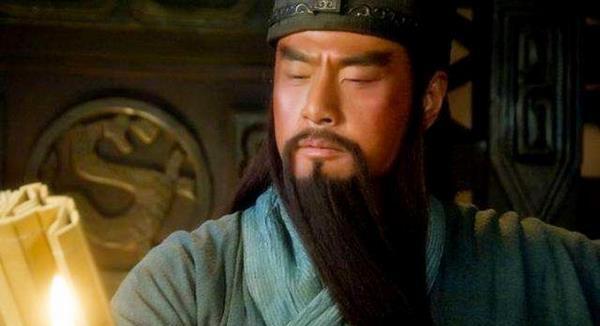In 219, Liu Bei established himself as king of Hanzhong, and after that, he rewarded his meritorious subjects, and Guan Yu, who sat in Jingzhou, was given the title of former general. After this, Guan Yu let Mi Fang sit in Jiangling and Fu Shiren sit in the public security, believing that the rear was determined, so he sent troops to besiege the two cities of Xiangfan. At that time, Guan Yu was mainly besieging Fancheng, and The Defender of Fancheng, Cao Ren, could not resist Guan Yu's offensive, so while defending Fancheng, he sent people to inform Cao Cao of reinforcements. After Cao Cao learned the news, he immediately sent the Forbidden Governor Seven Roads Army to Fancheng, and just in case, Cao Cao also let Xu Huang sit in Wancheng and listen to the dispatch at any time. However, Yu Ban mistakenly stationed the camp in a low-lying place, the autumn rains in August continued, the Han River soared, Guan Yu saw this situation, immediately ordered people to build warships, and transferred the water army, subsequently, Guan Yu led the Han flooded the Seventh Army, and took the opportunity to sail into the Forbidden Army, thus forcing Yu To surrender, and beheading Pound, who refused to surrender.

At that time, Cao Cao arrived in Luoyang, he was alerted by all sides, a little nervous, for this reason, he also discussed with the hundred officials about moving the capital, Cao believed that Emperor Xian of Han was in Xudu, very close to Guan Yu, and he was ready to move Emperor Xian of Han to a safe place to avoid Guan Yu's momentum. It can be seen that Guan Yu's Northern Expedition at that time brought shock and impact on Cao Wei. However, after this, Sun Quan sent Lü Meng to cross the river in white clothes, and Lü Meng not only cut off Guan Yu's rear road, causing the army led by Guan Yu to be confused and was defeated by Xu Huang, at the same time, Eastern Wu also sent men and horses to cut off Guan Yu's various retreat routes, Guan Yu was defeated and killed, and Sun Quan completely accepted Shu Han's territory in Jingzhou.
It is not difficult to see that Guan Yu sent troops from Jiangling to besiege the two cities of Xiangfan, and in the early stages of the war, Guan Yu fought with great success, and he flooded the Seventh Army, threatening Huaxia, forcing Cao Cao to almost move the capital to avoid its sharp edge, which shows that it is feasible to besiege Xiangfan and send troops to the Northern Expedition. But what is strange is that even though Sun Quan captured Jingzhou in a perfidious way, he did not seem to choose the same northern expedition route as Guan Yu, but still sent troops to besiege Hefei. It is reasonable to say that Guan Yu had already proved to Sun Quan with his actions that starting from Jingzhou, the Northern Expedition to Cao Wei was feasible, and at this time, Shu Han was not capable of cutting off the back road of Eastern Wu from Jingzhou, so why did Sun Quan still not choose to send troops from Jingzhou to the Northern Expedition, but still chose to die in Hefei?
In fact, Sun Quan did not give up the use of troops from the direction of Jingzhou, but his fate was not better than Thathefei, and before Lü Meng's death, he had planned to take Xiangyang and the White Emperor as the boundary, and quickly wanted to occupy the Jianghan Plain, but unfortunately, after defeating Guan Yu, Lü Meng died soon after. After Cao Pi succeeded to the throne, he moved the seat of governor Jingyu back to Wancheng, and Sun Quan sent the general Chen Shao to occupy Xiangyang, which was later retaken by Xu Huang. But even so, Sun Quan still failed to gain much from the war in Jingzhou. At that time, Sun Quan sent troops in both jiangxia and Xiangyang, but Wen Ping forced Sun Quan's army to retreat in Jiangxia, while Sima Yi broke Zhuge Jin in Xiangyang and killed Zhang Ba, Xu Huang also participated in the battle, and another army was broken by Cao Xiu in Xunyang, which shows that Sun Quan had tried, but it had no effect.
As for why Sun Quan insisted on sticking to Hefei, mainly because Hefei is a place where the advantages of the water army can be brought to the fullest, it should be known that Hefei is not on the border between Wei and Wu, but in the hinterland of the Wei state, but the Eastern Wu side can often attract troops to Hefei, because Eastern Wu can take the waterway to Hefei. Looking back at each expedition of Sun Quan, his marching route is extremely fixed, Sun Quan generally goes from the Yangtze River to the Shuisu Water, and then traces the Chao Lake, and then from the Chao Lake to the water, directly to the city of Hefei. From Hefei to the north, the army of Eastern Wu must disembark, as long as it marches a few tens of miles further north, there will be another waterway to go. As long as Hefei was captured, the Wu army could enter The Water of Wei, and then go up the river to Huaishui and Yingshui, and then straight into the hinterland of the State of Wei.
The author believes that it is precisely because the advantage of Eastern Wu lies in the water army, and Hefei can make the water division play the greatest role, so Sun Quan had to die in Hefei, while Sun Quan in Jingzhou tried but had no effect, so he naturally gave up.